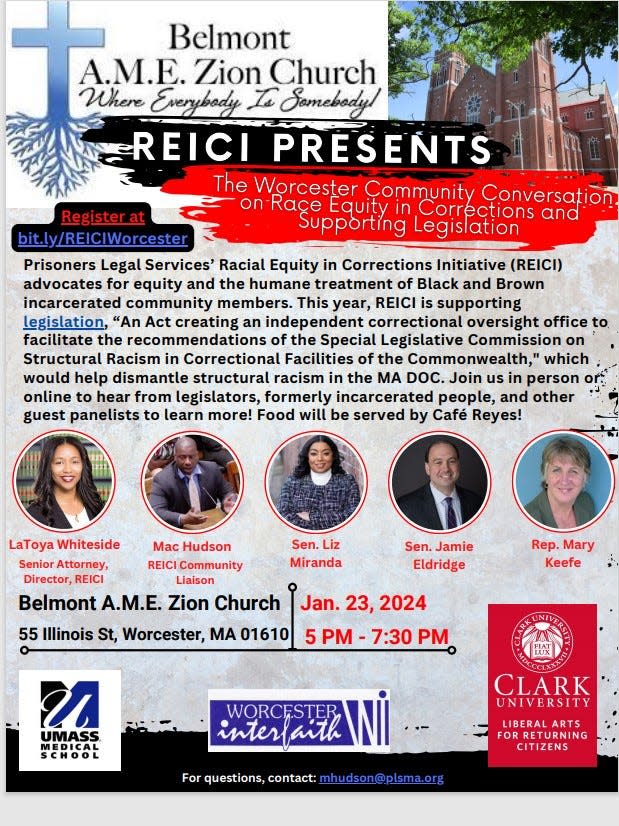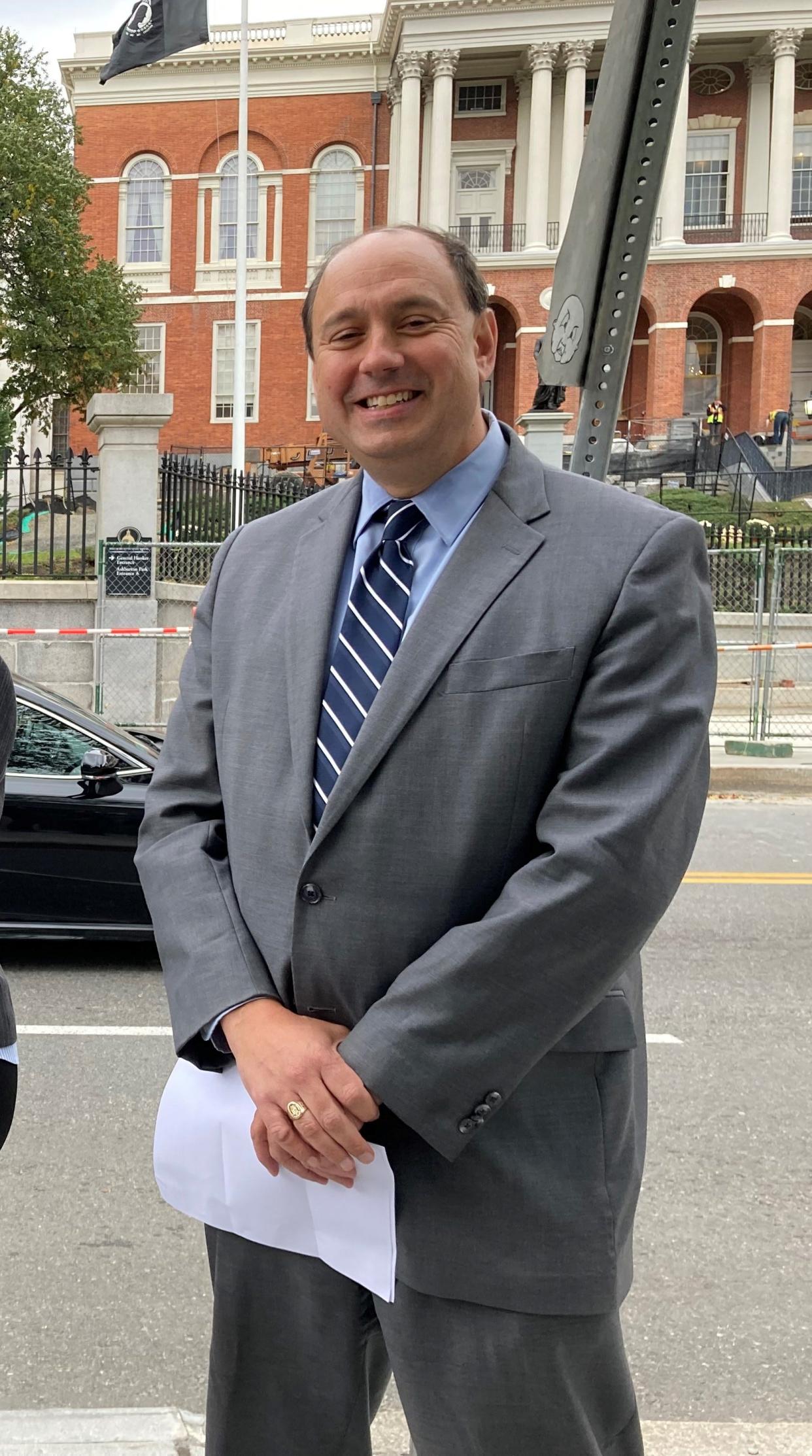Meeting in Worcester to discuss racism in Mass. prison system
One of the groups that helped shape a 2022 report issued by a special commission tasked with investigating structural racism in the Massachusetts prison system, Race Equity in Corrections Initiative, is bringing the issue Tuesday to Worcester.
The group will be hosting community leaders, legislators and the public at 5 p.m. at Belmont A.M.E. Zion Church, 55 Illinois St.

Speakers will include LaToya Whiteside, senior attorney and director of the Race Equity in Corrections Initiative, and its community liaison, Mac Hudson; state Sen. Liz Miranda, D-Boston; and state Rep. Mary Keefe, D-Worcester. They will discuss legislation that would establish a special oversight body tasked with investigating and addressing structural racism in the state’s prisons.
"We're excited to bring legislators, advocates and directly impacted people together in Worcester to build grassroots support for new, groundbreaking legislation that fosters real transparency and accountability," Whiteside said in a written statement. "From reports by state commissions to countless conversations with incarcerated community members, it's abundantly clear that meaningful change is needed to address structural racism in corrections and beyond."
The meeting follows a hearing on the bill, and several others affecting incarcerated people, last week before the Joint Committee on Public Safety and Homeland Security.
“The Massachusetts Sheriffs' Association has been actively working with Senate leadership on this bill, and other key pieces of legislation impacting our Sheriff’s Offices,” according to a statement by the association Friday. “We look forward to continuing this collaboration and will be providing testimony on a number of bills at the Joint Committee on Public Safety and Homeland Security hearing on Tuesday.”
The creation of the Special Legislative Commission on Structural Racism in Corrections Facilities in Massachusetts, one of 12 special bodies established to explore the issue throughout Massachusetts society, institutions and agencies, was a reaction to the 2020 murder of George Floyd by a Minnesota police officer. The permanent commissions are Status of African Americans, Status of Latinos and Latinas, Social Status of Black Men and Boys and Status of Persons with Disabilities.
Communities throughout the United States were prompted to look into the role of systemic racism in their organizations and institutions. Massachusetts also acted, crafting the 2020 Police Reform Bill and establishing eight special exploratory commissions like the one looking into the corrections department.

After a year of reviewing the state’s correctional facilities, the commission found unfair treatment existed by race. The document revealed that racism in established policies and practices and within the system’s culture produces and perpetuates unfair treatment that impacts incarcerated people by race, as well as gender identity, sexual orientations and immigration status.
Eldridge, who served as co-chairman of the commission, said in his 2022 summary of the 71-page report that racism impacted the population in four distinct but overlapping areas:
Racism in the institution itself, in its policies and procedures
In the culture of the institutions
In the interpersonal relationships within the populations and between staff and incarcerated persons
Structural racism in external systems, housing and employment also impacted the population
The commission made 10 major recommendations of tasks to be accomplished by state legislators, by the executive office and its administration and by the system itself.
Miranda and Rep. Russell Holmes, D-Boston, have filed companion bills to implement one of the recommendations: The establishment of an independent correctional oversight body to ferret out and address instances of structural racism.
The special body would be located in the Office of the Inspector General, the agency that prevents and detects fraud, waste and abuse of public funds and public property and promotes transparency and efficiency in government.
“The inspector general is interested in working with the Legislature on the roles and responsibilities of the office that will help government work better,” said Carrie Kimball, a spokeswoman for the office. She declined to comment on the specific legislation proposed by Miranda and Holmes.
The proposed office, Inclusion, Diversity, Anti-Racism and Equity Unit, would incorporate legislative and departmental voices, as well as impacted community members, formerly incarcerated people or their family members. Control, according to the proposed legislation, would be lodged in the hands of the communities directly impacted by issues of racism within the department of corrections.
Its power would include investigating day-to-day operations and conditions of corrections, records reviews and examinations and legislative reviews. The unit would devise and implement a new uniform racial data collection system designed to record age, race, ethnicity, language, sex, gender identity and sexual orientation of the incarcerated population. The date would not be aggregate but individual and unique to each person within the system.
The unit would have unlimited and unrestricted access to the system, as well as to facilities. Tasked with investigating grievances and complaints of disparate treatment, it would create a reporting network for use by incarcerated individuals.
The proposed legislation would allow the unit to recommend and help implement anti-racism standards for corrections operations, ensure compliance with statutes, regulations and policies. The unit could also impose fines and enact punitive measures for administrators and staff based on findings of noncompliance.
All corrections department records would be accessible to the unit and made available on demand by corrections officials.
The legislation also takes care to protect them against retaliation from officials, administrators or employees of the corrections system for disclosing information, alleged wrongdoing or testifying in an inquiry.
This article originally appeared on Telegram & Gazette: Mass. bill would create office on systemic racism in prisons
